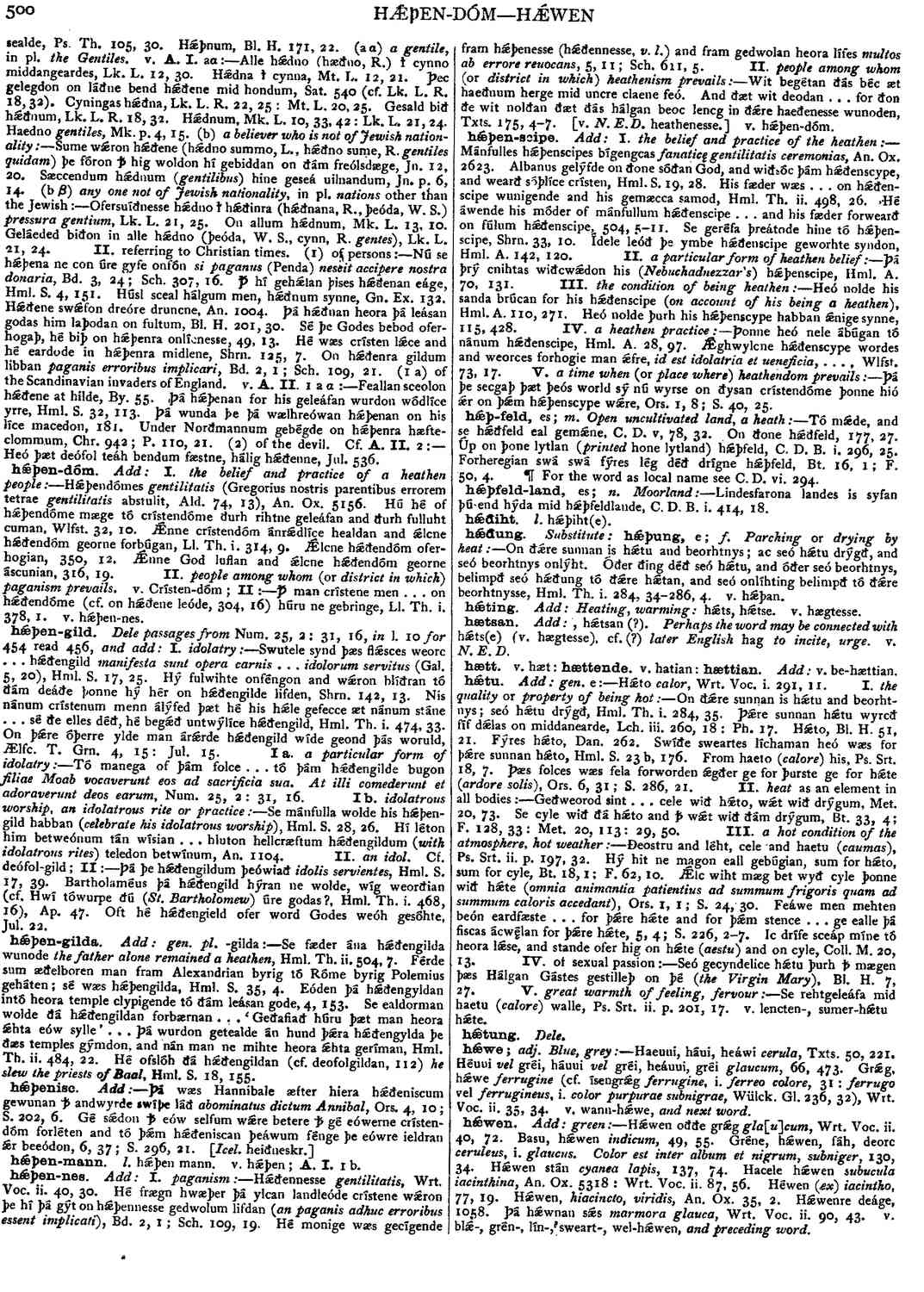hǽtu
-
Hǽto
calor.
- Wrt. Voc. i. 291, 11.
-
On
ðǽre sunnan is hǽtu and beorhtnys; seó hǽtu drýgð,- Hml. Th. i. 284, 35.
-
Þǽre sunnan hǽtu wyrcð fíf dǽlas on middanearde,
- Lch. iii. 260, 18 : Ph. 17.
-
Hǽto,
- Bl. H. 51, 21.
-
Fýres hǽto,
- Dan. 262.
-
Swíðe sweartes líchaman heó wæs for þǽre sunnan hǽto,
- Hml. S. 23 b, 176.
-
From haeto (
calore
) his,- Ps. Srt. 18, 7.
-
Þæs folces wæs fela forworden ǽgðer ge for þurste ge for hǽte (
ardore solis
),- Ors. 6, 31; S. 286, 21.
-
Geðweorod sint . . . cele wið hǽto, wǽt wið drýgum,
- Met. 20, 73.
-
Se cyle wið ðá hǽto and ꝥ wǽt wið ðám drýgum,
- Bt. 33, 4; F. 128, 33: Met. 20, 113: 29, 50.
-
Ðeostru and léht, cele and haetu (
caumas
),- Ps. Srt. ii. p. 197, 32.
-
Hý hit ne magon eall gebúgian, sum for hǽto, sum for cyle,
- Bt. 18, 1; F. 62, 10.
-
Ǽlc wiht mæg bet wyð cyle þonne wið hǽte (
omnia animantia patientius ad summum frigoris quam ad summum caloris accedant
),- Ors. 1,1; S. 24, 30.
-
Feáwe men mehten beón eardfæste . . . for þǽre hǽte and for þǽm stence . . . ge ealle þá fiscas ácwę́lan for þǽre hǽte,
- 5, 4; S. 226, 2-7.
-
Ic drífe sceáp míne tó heora lǽse, and stande ofer hig on hǽte (
aestu
) and on cyle,- Coll. M. 20, 13.
-
Seó gecyndelice hǽtu þurh ꝥ mægen þæs Hálgan Gástes gestilleþ on þé (
the Virgin Mary
),- Bl. H. 7, 27.
-
Se rehtgeleáfa mid haetu (calore )
walle,- Ps. Srt. ii. p. 201, 17.
- v. lencten-, sumer-hǽtu hǽte.
Bosworth, Joseph. “hǽtu.” In An Anglo-Saxon Dictionary Online, edited by Thomas Northcote Toller, Christ Sean, and Ondřej Tichy. Prague: Faculty of Arts, Charles University, 2014. https://bosworthtoller.com/51597.
Checked: 0